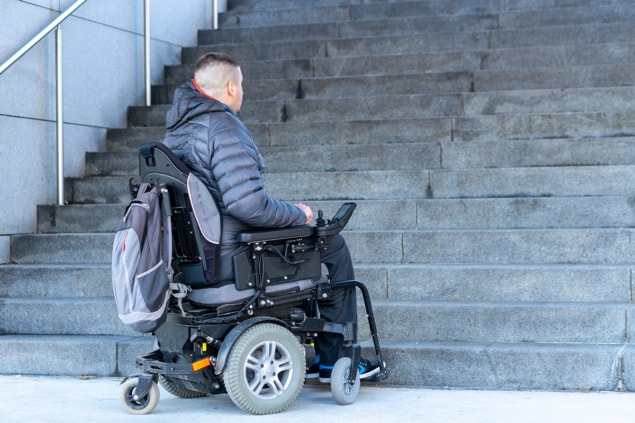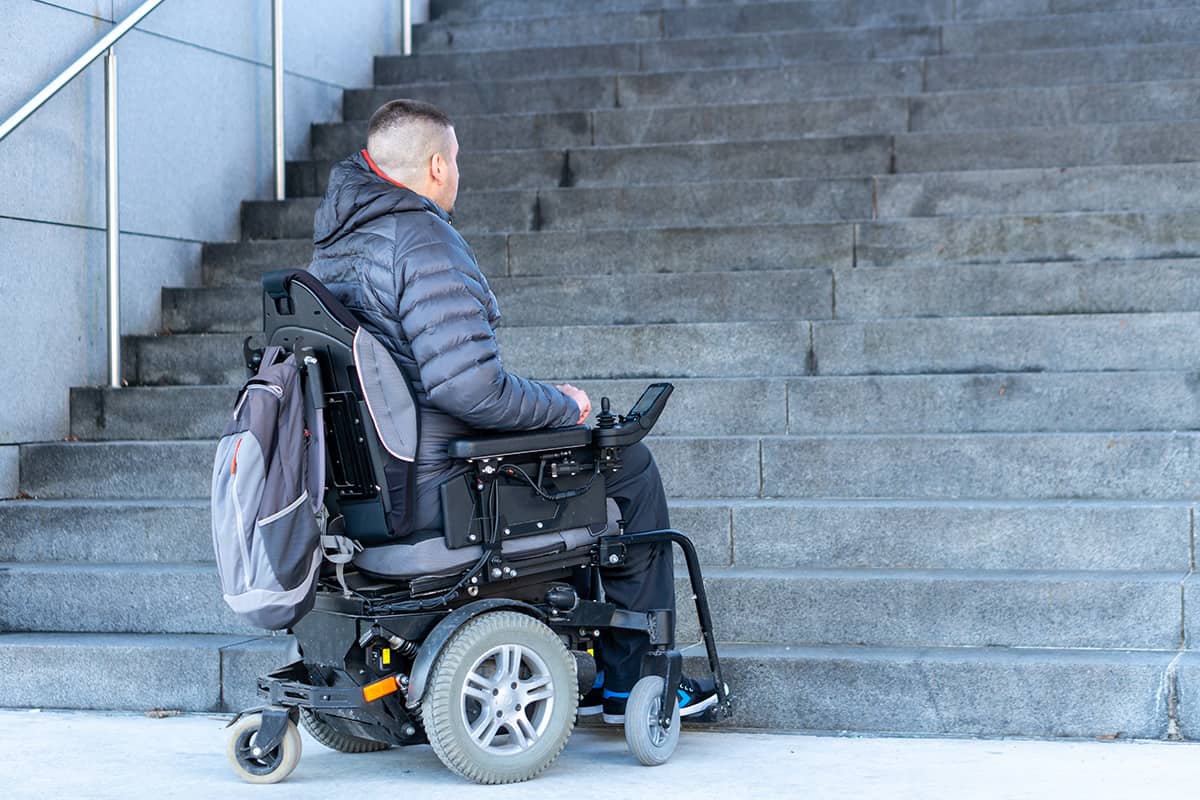Claire Malone highlights the importance of creating a better working environment for those with physical disabilities
 As I sat in the undergraduate labs on level 5 of the Blackett Laboratory at Imperial College London, my task was to make an accurate measurement of the gravitational constant. This experiment has been carried out countless times by physics students to demonstrate experimental aptitude as well as an understanding of Newtonian mechanics. The only difference compared with those around me, however, is that I performed the experiment “hands free”. In other words, I gave detailed instructions to my assistant who then helped me to carry out the investigation and the calculations.
As I sat in the undergraduate labs on level 5 of the Blackett Laboratory at Imperial College London, my task was to make an accurate measurement of the gravitational constant. This experiment has been carried out countless times by physics students to demonstrate experimental aptitude as well as an understanding of Newtonian mechanics. The only difference compared with those around me, however, is that I performed the experiment “hands free”. In other words, I gave detailed instructions to my assistant who then helped me to carry out the investigation and the calculations.
I have needed to do experiments this way throughout my education as I have had cerebral palsy since birth. This physical disability means that I have difficulty controlling my muscles, so I use an electric wheelchair to get around and a specialized joystick to operate computers. As I have always had my disability, I have learned how to negotiate my education and so have never had to adjust to a new way of working. This situation is very different, for example, to someone who acquires a disability later in life.
The right support
As we all know, studying physics means scribbling down lots of equations for many hours a week. The idea of dictating equations, experiments and even code may sound strange if you have never had to do it before, but with experience it is possible to find techniques to make it work. When I was studying for my physics undergraduate degree at Imperial, I had to find the right academic assistant to help me with my studies. They not only had to be someone who knew how to write equations, but also understood my speech. Thankfully, I found support that met my individual needs and priorities, but sadly that is not the case for everyone.
Recruiting assistants can be a struggle for universities. Institutions have generally been able to support disabled students for a couple of hours a week, but never for longer periods of more than 50 hours. Universities are simply not set up to provide that level of support. At a different UK university, which shall remain nameless, I was told that I met the entrance requirements but that I would have to delay my entry by a year while they adapted the buildings and recruited assistants to help me access my course.
It is also quite common, for example, to have a university site that is not set up for people who cannot climb stairs. I have been to open days in physics departments where the entrance to a main lecture theatre is on a mezzanine level that is not accessible by a lift. And if there is a lift, it is sometimes not big enough to fit a powered wheelchair. There have been times I cannot get into the building in the first place as it has no accessible entrance.
Beyond labs and lectures
Completing an undergraduate course or carrying out research in the lab is not the only difficulty that scientists who have physical disabilities must overcome. The best ideas can sometimes come not in the office or lab but when socializing. If colleagues go to an inaccessible venue after work, I could ask them to change their plans, but doing so can sometimes feel socially awkward. If I choose not to go, it can be academically isolating.
Another issue is that student and conference timetables that feature venues in multiple locations are also often not planned with people in mind who may need a little extra time to travel between places. At least this problem only requires awareness and forward planning to rectify, rather than bricks and mortar.

Physics in the dark
Difficulties are also often encountered in publishing where academics are faced with a huge pressure to “publish or perish”. In practice, this means that even if you have interesting ideas, then if the above issues slow your work down, you just won’t get the chance to explore them before you are scooped, which can be very demoralizing. This is a tricky issue to solve, which is certainly not unique to physics.
Conversation opener
The many challenges that people with a physical disability face can only be solved if the correct support structure is in place. Universities should certainly not apply a “one size fits all” approach to catering for students with disabilities and while I don’t expect the problems I mention above to be solved overnight, hopefully talking about these situations can lead to solutions.
I believe that people with physical disabilities will only start to consistently reach the forefront of research when the barriers they face are removed – and that begins at school, which is a whole different issue to be tackled. Increased awareness instead of obliviousness, which is often sadly encountered in academia, can help to create a better working environment – not only for those with disabilities, but for everyone.
